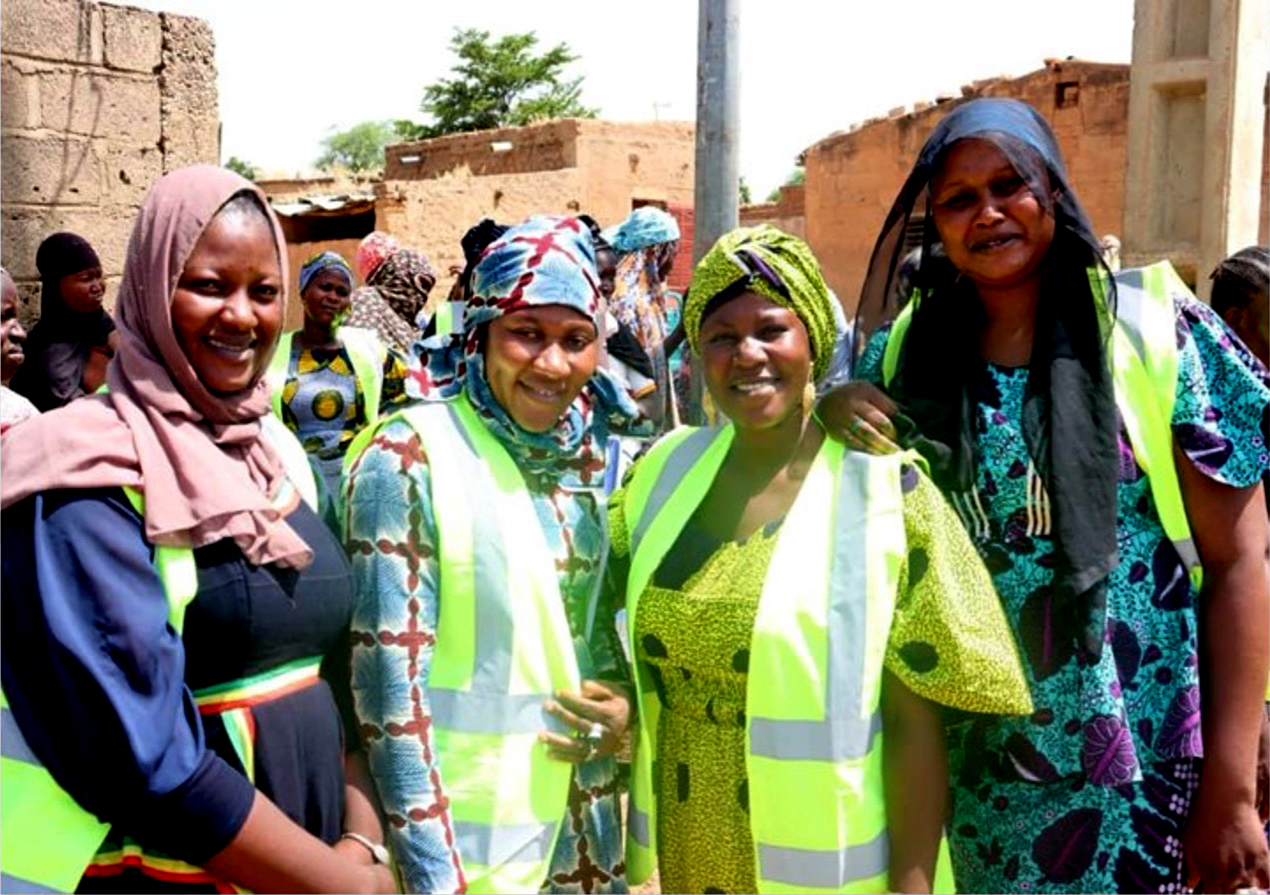My recent visit to Mali revealed a glimmer of hope, primarily stemming from the power and resilience of local communities, especially women and youth.
Bandiagara - A region of hope despite insecurities
23 juin 2023

Cash for Work Beneficiaries of Liptako Gourma Facility, Bandiagara, Mali
Mali has faced significant challenges with frequent attacks by extremist groups and a deteriorating security situation. The Central and Northern regions, in particular, have been heavily impacted, leading to a large number of internally displaced persons (IDPs). According to the Stockholm International Peace Research Institute (SIPRI)'s latest research, the majority of the population is concerned about food security and poverty.
Despite these difficulties, my recent visit to Mali revealed a glimmer of hope, primarily stemming from the power and resilience of local communities, especially women and youth. Bandiagara, located in central Mali, is becoming an example of a vibrant region where communities are regaining their sense of security, empowerment and taking charge of their own progress. In contrast to the past, the region is now witnessing a significant return of displaced individuals, with 74,400 people recorded as having returned in April 2023, doubling the number from the previous year.
In 2022, Bandiagara suffered from armed attacks and inter-community clashes, displacing over 91,000 IDPs (OIM, DTM April 2022). The region's economy was affected and infrastructures such as roads, bridges and schools were destroyed, hindering access to basic social services and mobility for the population.
However, the situation is changing as the improved provision of essential services, including education, water, healthcare, and schools, is encouraging people to return. Economic revitalization is a crucial for the region's recovery. Additional partners are investing in stabilizing the region by reintegrating the economy and strengthening the capacity of women and youth in trade.
During my visit, I met with the Bandiagara communities and the UN team, who confirmed that the Facility had helped to meet the needs of displaced people, by building shelters in collaboration with the Liptako Gourma Stabilization Facility team. They explained how the project, supported by the Czech Republic, Denmark, European Union, Germany, Japan, the Netherlands and UNDP, has played a catalytic role in their achievements.
In one year, 1,328 people (58% women and 85% youth) directly benefited from engaging in the rehabilitation of key community services such as water, roads, education, and health. Such support not only provided them with income but also instilled a sense of pride and dignity. The construction of new roads facilitated access to neighboring areas, which is crucial, especially during the rainy season when most roads are inaccessible.
Looking Towards the Future
"The facility is the first program that truly integrated us and opened doors to more opportunities." expressed Ms. Yaiguere Tembely, the Regional Head of the Coordination of Women's Association and Civil Society Organizations in Bandiagara. Youth representatives highlighted how the facility provided cash-for-work opportunities for women, youth and IDPs, inspiring other partners to follow.
The governor of the Bandiagara region stated, "The facility is unique as it brings essential services directly to our communities, such as water, roads, and healthcare. These services are making a significant difference in the region." He confirmed the region's commitment to stabilization by implementing a dedicated Regional Strategy for the centre and its action plan.
Partners emphasized that the facility was the first to invest in IDPs and reintroduce services to the people in Bandiagara region. UN partners expressed their commitment to following the facility's lead. More investments are required in the Bandiagara region, working directly with local communities and administrations. Women's associations, in particular, possess unique knowledge about their needs and can transform investments into opportunities. They are taking part in the establishment of a stabilization committee to identify needs and address ongoing security threats.
Bandiagara is a model of success despite persistent challenges such as inter-community clashes and security in cross-border areas with neighboring countries. Further investment is needed in the Bandiagara region, working directly with local communities and administrations. While a cautious approach may be taken due to the geopolitical context, we must continue investing in communities. They play a vital role in bringing peace, stability and hope to the country and the region as a whole.

 Locations
Locations